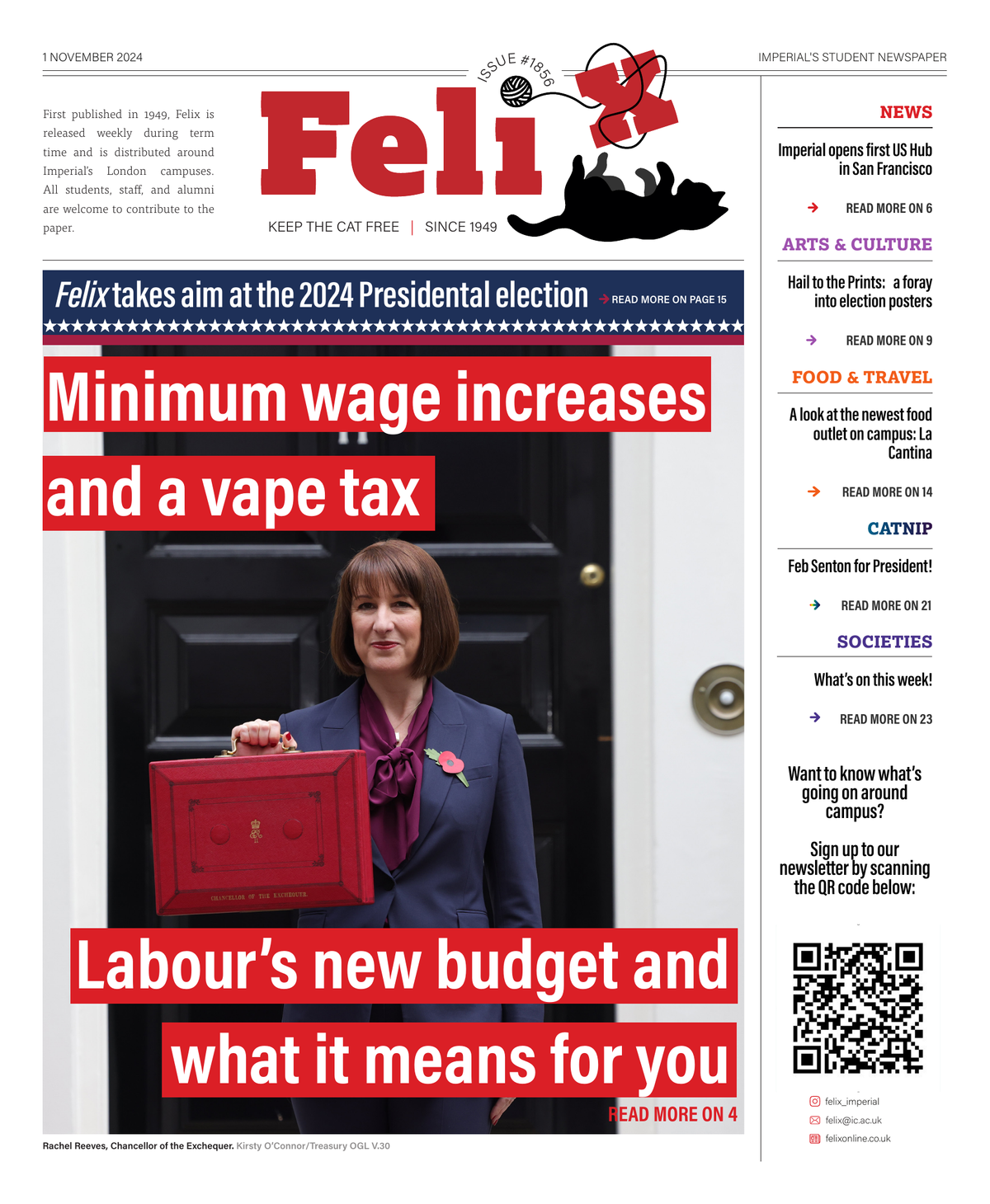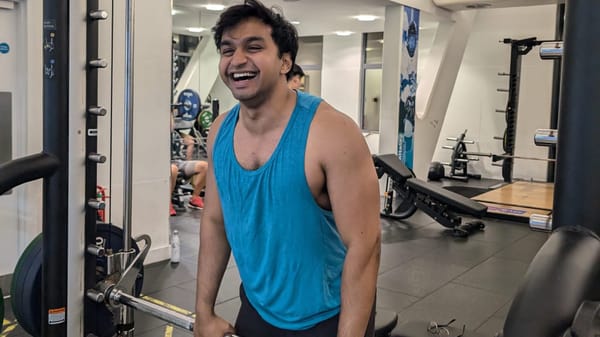OT Interviews: Emina Hogas, Deputy President (Education)
Felix interviews Emina on her campaign promises and the experiences of postgrad students at Imperial
Deputy President for Education (DPE) Emina Hogas always looks impressive. Always dressed formally, typically in a shirt or blouse, she tells me it’s because she has many meetings to go to. Professionalism is key, when she is the point of contact between the College and the Union for academic policies.
Emina has the most College meetings of all the Officer Trustees. She explains how “there’s a skill” to attending meetings. “I try to prepare for them as much as possible and make full use of my time in those meetings. Ultimately, I’m very privileged to be part of those rooms and I want to make the most of them while I am in them. It’s not so much the meetings but the prep that has to go into them which is considered business as usual so that’s completely outside of my own objectives [her manifesto promises] which can be quite difficult.
“I think it was definitely a hard thing to get to grips with in my first month working especially because I was juggling my [Master’s] thesis at the same time, but I think I’ve gotten a better handle on it now. Slowly, I’m learning how to also incorporate my objectives into these meetings and make full use of them, both on the input that the College wants from students and what I’m trying to push for.”
Voted in on an impressive mandate of 87%, despite being the sole candidate, plays into Emina’s dedication to the role. “I’m doing everything in my power to show that if there was somebody else running, I would have in fact done my hardest to work for this role because I deeply care about making a change and improving the Imperial student experience in the long run.”
Previously working several roles in the BioSoc committee, and a course representative during her masters, Emina decided to run as a sabbatical officer due to a “lack of parity and consistency of experience”. She explained how she “didn’t think” the disparity in course quality was “fair, especially now with the increase in student prices for internationals and the upcoming discussions about increase for home students”. I wondered if the disparity was due to changing departments or due to the type of student she was, after transitioning from an undergrad to a taught postgraduate. Emina said, “I don’t have proper insight on what it is to be a postgrad at Imperial because I had the luxury of being here for my undergrad so I was still well connected with the Union, previous friends that were doing their integrated Masters so I still had a community to return to,” but seeing how new starters at Imperial struggled to “expand[ing] too much outside of the initial group of friends that they met in the initial week just because they didn’t have time to.
“My course specifically was very Autumn Term– heavy and I think that really hindered how people made connections early on and especially for a year that really just overwhelms you. You don’t really have much capacity outside of doing the work, getting the deadlines and all of that so personally I think it depends a lot on from taught course but I think overall taught courses can be quite intensive for new students at the university and some can find it difficult to actually take advantage of all the services [available].
“My experience as a post-grad is definitely what made me go for the role and I think it’s given me a special type of insight into the difficulties that post-grads face despite possibly not having gone through all of them myself but being quite close to those who have.” One of Imperial College Union’s core aims this year is communication, especially towards research postgrads, a demographic that historically hasn’t engaged with the Union. Emina elaborated on how she is the point of contact for Academic Representatives, which are members of the IC Unions representation team, “So yeah, we’re taking out time to have drop-ins, we have blocked out time as a team to update each other on our objectives and how we can delegate tasks or just distribute things amongst us.” Emina’s aims as DPE are to centralise mitigating circumstances, improve academic feedback, help international students integrate into College life, and form an alumni network for “unconventional careers”.
" I’m very privileged to be part of those rooms and I want to make the most of them"
She has started with mitigating circumstances (mit-circ) because she feels “everything is intertwined realistically, especially mit-circ and assessment and feedback,” and “assessment and feedback has been kind of plan B just for the time being is because, realistically, I need to wait for the reps to take on the roles, otherwise I can’t really feedback from all ends of the College about what’s actually needing attention.”
Her aim is to introduce “a mitigating circumstances policy that would allow evidence-free extensions. It’s based off something that other universities are doing where essentially, we’re giving back students some autonomy around deadlines especially for courses that have a lot of assessments. It would be capped at three a year”, to prevent misuse without being an issue. “Staff have had things to say but I think we’re on the path of seeing something like this hopefully taken on by the end of the year. And in terms of unifying mit-circs, that’s very difficult just with the IT side that the university uses. It’s not so much a policy thing, more of a what can actually be implemented with the systems that we have. That means that we have to wait a little bit longer but what we’re doing now is to try and create policies so that that can inform the tech.”
I wonder what an unconventional career path is. To Emina, it’s all the jobs you dream of doing, “I think the first example that comes to mind is a physicist who then decided to be an orchestra conductor. He did a full MSci and now just conducts orchestras.” She continues, “it’s something that you wouldn’t possibly think of going into in your first year.” I ask if journalism is also considered. “It’s just broadening those horizons as early as possible,” Emina continues after I ask about why it was a manifesto promise. “I obviously see what’s happening in the job market and I think we’re not seeing that many people actually happy with their jobs nowadays. I think that comes from people having to choose their careers at the age of 16 and thinking that they are locked into that all the way and I don’t think that’s fair. It came from wanting to give people the opportunity to fully explore themselves which is what university is for it’s not to just hammer away at work and like narrow yourself down into a specific stream.”









